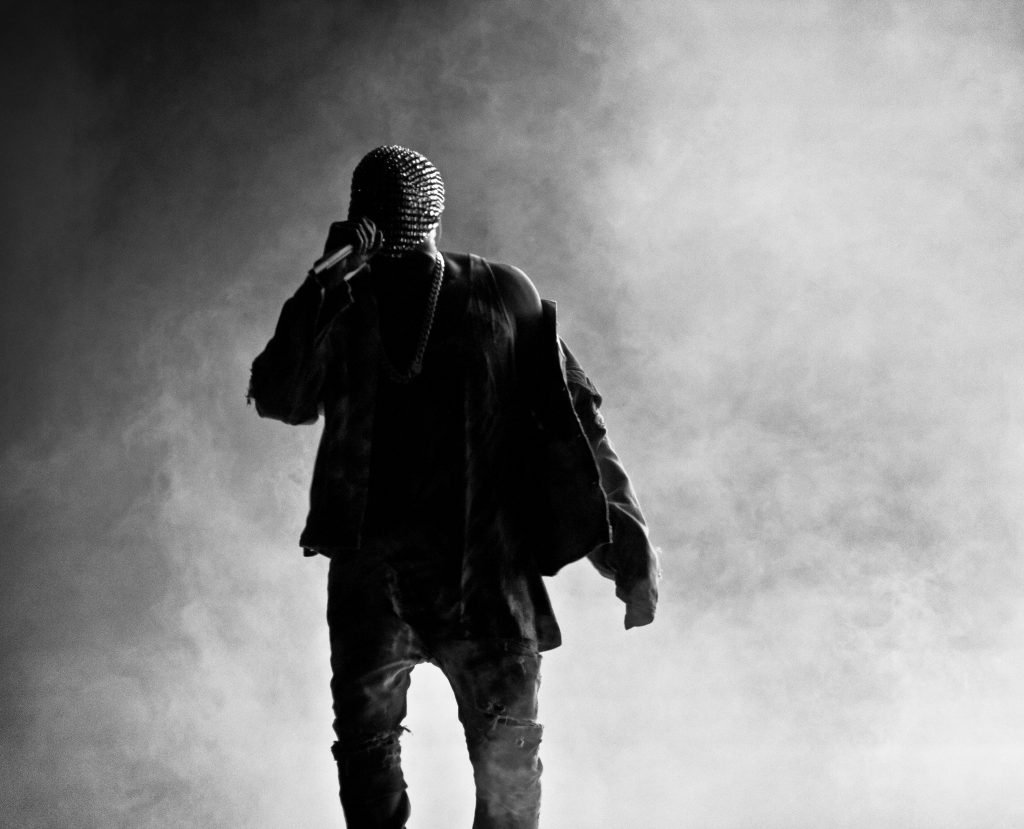
Unsplash/Axel Antas-Bergkvist
Ye, formerly known as Kanye West, recently sparked controversy after launching online attacks on his ex-wife, Kim Kardashian, and her boyfriend, Saturday Night Live comedian Pete Davidson. Amid his divorce, Ye’s posts range from accusing Kardashian of keeping their children away from him to brewing hateful sentiments toward Davidson. A slew of online commentary and memes discussing Ye’s constant posting has resulted in widespread dismissive attitudes toward the rapper’s behavior, reducing him to a joke.
But the public’s sentiments are not beneficial to the conversation surrounding mental health. Ye’s mental health has been subject to many comedic skits, memes and overall disparaging commentary. Those who participate actively contribute to the stigma against conversations about mental health in the Black community and mental health overall.
Mental health has become a less stigmatized topic in recent years, but more severe illnesses have yet to escape harmful labels. In 2018, Ye released his eighth studio album, “Ye,” and announced his diagnosis of bipolar disorder and news broke of his psychiatric emergency during his 2016 Saint Pablo tour. His hospitalization came just days after he criticized his long-time collaborator Jay-Z and praised former President Donald Trump onstage. This turbulent time led to a long-term mental health episode where the rapper made shocking remarks resulting in the cancellation of his remaining tour dates. Since then, many have hypothesized that the rapper’s controversies have been a result of manic episodes, and the online consensus remains that Ye is a crazy man who spends too much time on the internet. Ye has not escaped the mental health stigma as a public figure, as a man and as a Black man.
Mental health is not widely discussed within the Black community, and the existing stigmas have prevented those affected from receiving proper help. The obtuse nature of public commentary surrounding Ye’s actions embodies the result of a lack of awareness and culturally competent mental health. When the general public does find it appropriate to discuss the rapper’s mental health, it is often through the lens of the obscene actions he committed, such as his infamous 2009 VMA comment. The discussion is also often centered around another public figure, typically a white woman, rather than looking at the intersection of his race and mental health at the core of these actions leading up to such outbursts.
The way mental health is viewed among the Black community plays a part in how he is received publicly. The large disparities and cultural stigma across the Black diaspora make mental health a taboo topic and ultimately makes it difficult for mentally ill individuals in this community to seek help. As such, Ye’s outbursts should be contextualized and the public should empathize with him before hitting “send tweet” on whatever meme they may be typing. However, Ye still has agency over his actions and has publicly accepted responsibility for some of them, like apologizing for social media posts that harassed Kardashian or threatened Davidson. Ye’s identity must take precedence in this conversation because it directly reflects the kind of public reaction he is receiving. His identity is also a great reminder of the deeper-rooted problem of the inaccessibility to mental healthcare to people who look like Ye. It is regressive to oversimplify Ye’s actions in an age where mental health advocacy is more relevant than ever.
Ye’s latest endeavor, a Netflix documentary titled “jeen-yuhs” displayed a more multi-dimensional side to Ye, and add to the conversation of his perception. Public perception of Ye has always been skewed by his overt confidence or controversial outbursts. During act iii of his Netflix documentary, jeen-yuhs, Ye discusses the long-term effects of his bipolar medication, and his struggles with depression and suicidal ideation. Jeen-yuhs provides the world with a new perspective of the rapper; it offers a nuanced insight that many consumers today tend to ignore when thinking about Ye’s public perception. The rapper’s mental crises are presented in a serious light from a third-person perspective which is a fresh change from the endless biased commentary and joking.
In act iii of the trilogy, the director reminisces that Ye once said that he wasn’t ready for the world to see the real him and that his public persona was an act. Coming on to the scene of rap with a new message, image, and having a small circle of people as your core supporters can cause plenty of mental strain, especially in Hollywood culture. The hip-hop scene is not typically open about mental health; rather, the industry has enforced standards of toxic masculinity such as not discussing male emotion or vulnerability due to hypermasculine expectations. Nineties hip-hop transitioned from political commentary to discussing material life and the over-sexualization of women rappers constructing their identities around this image. It was implicitly understood that subjects such as mental health were not up for discussion in such a masculine space. Ye, like many other Black men who are comfortable discussing issues such as mental health, is figuring out how to handle these issues. He tried to remedy Kardashian-related backlash by using his identity as a means of explaining why he is not in the wrong and trying to illustrate his point of the Kardashians abusing their power and privilege.
The only difference between Kanye and another bipolar individual is a $1.8 billion net worth, unsupervised social media access to accounts influencing millions and publicized manic episodes. Even with access to premium healthcare and resources, Ye is still a person deserving of understanding, especially in the complexities that lie in the intersection of living with bipolar disorder as a person of color. No amount of money can buy Kanye out of the lack of culturally responsive healthcare. Ye is not a saint by any means. Ye almost correctly addresses these problems by trying to put himself at the forefront of complex topics such as race and gender when discussing the Kardashians’ and the public’s attacks on him, but falsely frames himself as the sole victim of these issues when in reality he is another man on the internet arguing with his children’s mother.
His mental state does not absolve him from harassing his ex-wife online and potentially endangering her new boyfriend. But the public should be more receptive to the nuance in his diagnosis if they wish to have input in this conversation, rather than regarding him as a joke.
Kayla Robinson (25C) is from Charlotte Amalie, St. Thomas, USVI.
Kayla Robinson (25C)(she/her) is from Charlotte Amalie, St. Thomas, USVI majoring in Neuroscience and Behavioral Biology. She is also a contributing writer for the Emory Undergraduate Medical Review and enjoys graphic designing in her free time.




